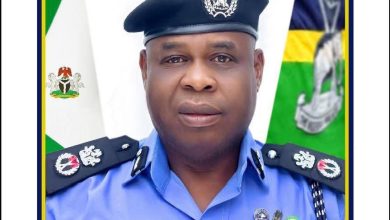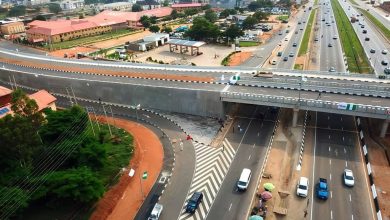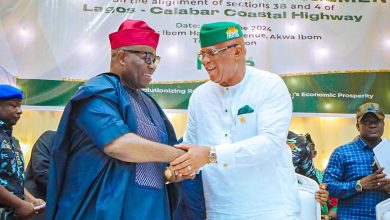Armed Forces Remembrance Day: Late Gen. Philip Efiong’s Family Cries Out ‘Govt Has Abandoned Us’
By Substance Udo-Nature
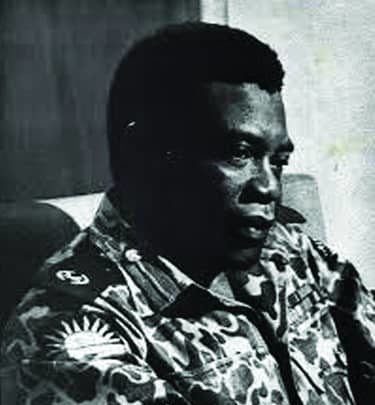
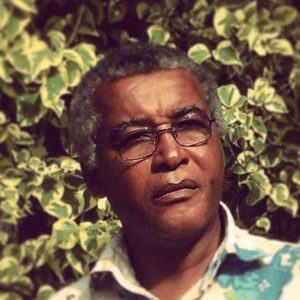
To the surviving family members of one of Nigeria’s earliest commissioned army officers, a General and Civil War hero, late Gen. Philip Efiong, the ongoing Armed Forces Remembrance Day (and those in the past) may mean very little or of no real significance to them on remembering the age-long excruciating neglect they have suffered in the hands of successive Nigerian and Akwa Ibom administrations since after the war.
In an emotion-laden exclusive chat with our reporter, recently, at the country home of the departed war strategist, meant to sharpen memories in connection with the 2019 Armed Forces Remembrance Day, one of General Philip Efiong’s children, Barrister Charles Efiong, on behalf of the family, narrated the unpleasant experiences they have had to grapple with all alone over the years and therefore expressed raw displeasure over the way government handles the welfare of war heroes and veterans in the country.
The Barrister who said he was about 11 years old at the time of the Nigerian Civil War (1967 – 1970), went down memory lane to rake up the travails of the period and perhaps, for the first time, made interesting disclosures that may not have been in public space until now. “There are some things you just have to force yourself to forget about the war and today, if possible. But the peculiar experiences of General Efiongs’s family can make such task very hard”, he hinted.
Born on 18 November, 1925 in Ibiono Ibom Local Government Area of Akwa Ibom State, late General Phillip Effiong joined the Nigerian Armed Forces on July 28, 1945 and rose astronomically through the ranks to the echelon as a General and recorded many firsts including serving as Nigeria’s pioneer Director of Ordinance.
As time and events dictated, he subsequent became Chief of General Staff and Vice President under the Biafran War lord and Eastern Nigeria Military Leader, late Ikemba Odumegwu Ojukwu, and was celebrated as the most loyal and bravest amongst his colleagues. He crowned his professionalism, bravery and humanist disposition by being the last man standing in spearheading the ultimate armistice that brought the final end to the 3-year war.
By damning the consequences and courageously surrendering the Biafran Army to the Gen. Gowon-led Nigerian troop after Ojukwu had fled to Cote d’Ivoire, history has credited Gen. Efiong as founding member of the Nigerian high military command structure in the country’s first military administration and the very man who fostered the survival and unity of the Nigerian nation.
Giving insights into what life has been like since then to the surviving members of the family made up of the wife, Josephine Efiong, and eight children who are all alive today, Barrister Charles Efiong simply described the sojourn as traumatic, especially in the total absence of deliberate concerns from government, although Providence never failed them. For instance, he recalled with repressed tears the ironic marginal involvement shown by the Akwa Ibom Government towards the burial of the war hero, compared to the overwhelming commitment of all state governors of Igbo extraction who had wanted interstate procession for the Peacemaker across the five states of the east.
The Barrister advocated that distraught families of fallen heroes deserve more than statutory gratuities that amount to nothing in material terms and therefore implored both state and federal governments to entrench systematic and sustainable machinery that would effectively cater for the welfare of families of war heroes and veterans. He further emphasized that it was grossly wrong on the part of government to think that paying pension was enough, without functional altruistic mechanusms for the surviving members of such families some of whom may still be suffering from post-war psychological trauma and chronic sicknesses even when it ended many years ago.
Calling on Nigerians to chart a new course to further strengthen the unity of the country and the diversities she is blest with, the legal luminary lamented that a critical mass of Nigerians has failed to learn lessons from the war as sentiments that led to that avoidable civil strife tend to have assumed worse proportions in present circumstances and thus presents even much greater threat to peaceful coexistence. These, according to him, include the stigma pinned on the back of certain persons, groups as well as the consistent agitation by minorities over the same issues of yesteryears.
Although Barrister Efiong said he was not altogether surprised by the enduring stigmatization of his late father and his family by previous and subsequent Nigerian characters, he particularly observed that it was a slap on history and the selfless contributions of General Phillip Efiong that up till now, not even a street or a structure has been named after him anywhere in the country, either by state or federal government.
The sound legal practitioner who never held any appointment by any Akwa Ibom administration and who in 2019 had earlier indicated interest to run for the Ibiono Ibom State Constituency but was played out for lack of funds to purchase a nomination form, stated contemplatively: “Except that happened just yesterday without our being notified, I cannot remember anything that has been done to honour or perpetuate the footprints of this great Nigerian and Akwa Ibom son. It bites even deeper when he is forgotten by his home people. The question therefore circles around the actual or contrived reasons for such conspiracy. To say the least, we have been abandoned by government”.
Nevertheless, he generously appreciated the few individuals and institutions mostly among the Igbos who have shown in words and deed what the name Gen. Philip Efiong meant in the socio-political evolution of Nigeria. Interestingly, barely three weeks ago, December 17, 2019, in recognition of his enormous sacrifices for the oneness of the country, the Alex Ekwueme Federal University, Ebonyi State, awarded Gen. Philip Efiong a posthumous degree of Doctor of Science in Peace and Conflict Resolution (Honoris Causa).
Efiong Jnr. accordingly surmised,
“Armed Forces Remembrance Day then shall have greater and deeper meaning or impact if families of the departed soldiers were given convincing reasons to join in the celebrations, beyond the ostentations. In concept and actual sense, the week should be that of thanksgiving and testimonies devoid of mere emotions and lamentations over bad treatment from the very ones who were supposed to be strongholds and fountains of consolation”.
In an autobiography by late General entitled, “Nigeria and Biafra: My Story – The People’s General”, former President Ibrahim Babangida in its foreward described him as “a man whose carrier and national service will remain indelible in our national history and a man whose memory we all treasure, an important factor in the international politics of the Nigerian Civil War”.
Some of his contemporaries and conscious students of history might still recall with therapeutic gratitude the famous lines in Gen. Efiong’s speech on the epochal moment he sought unconditional armistice with Gen. Yakubu Gowon: “I am convinced now that a stop must be put to the bloodshed which is going on as result of the war. I am also convinced that the suffering of our people must be brought to an immediate end”.
General Philip Efiong who was about the 5th Nigerian to join the Army, the “Akangakang Ibiono” (The War Sword of Ibiono), the renowned General; brave war strategist, pacifier and catalyst, scholar and patriotic Nigerian of inimitable record, died on 6 November, 2003, aged 77.
But, curious to note with some sympathy, all that the Federal and Akwa Ibom State Governments perhaps may have in salutary tribute to this great son of Ibiono Ibom may be just a tiny string of his name at the cenotaph, where wreaths shall be laid for her departed heroes for the annual episodic drama of Armed Forces Remembrance Day!

